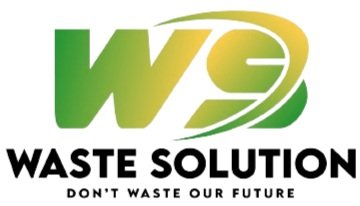Future of Waste Disposal
The future of waste disposal is poised for significant transformation as the world faces growing environmental challenges and an increasing focus on sustainability.
The future of waste disposal is poised for significant transformation as the world faces growing environmental challenges and an increasing focus on sustainability. Innovations in technology, changes in buyer behavior, and stricter regulations drive changes in how waste is managed and disposed of globally. As these evolve, the role of waste disposal companies will become even more important in guaranteeing efficient and environmentally responsible practices.
Advancements in Recycling Technology
Recycling technology plays a significant part in the future of waste disposal. Traditional recycling methods are frequently limited by the types of substances that can be processed and the efficiency of sorting systems. However, advancements in artificial intelligence, robotics, and sensor technology are making it possible to improve sorting accuracy and increase the range of materials that can be recycled. These technologies allow waste disposal companies to recover more valuable resources from the waste stream, reducing the amount of material sent to landfills and contributing to a circular economy.
Innovative recycling processes, such as chemical recycling, are also emerging as solutions to the problem of plastic waste. Unlike mechanical recycling, which can degrade the quality of plastics, chemical recycling breaks down plastics into their essential chemical components, allowing them to be reused to produce new materials. As these technologies become more widespread, waste disposal companies can divert more plastic waste from landfills and reduce the environmental effects of plastic production.
The Rise of Waste-to-Energy Solutions
Waste-to-energy (WTE) solutions are gaining traction as viable methods for reducing landfill waste and generating renewable energy. These technologies convert waste materials into energy through incineration, gasification, and anaerobic digestion. By converting waste into electricity, heat, or fuel, WTE facilities help lower the volume of waste in landfills while also providing a sustainable energy source.
Waste disposal companies are increasingly exploring WTE options as part of their waste management strategies. Developing more efficient and environmentally friendly WTE technologies, such as advanced gasification and plasma arc technology, is expected to drive further adoption of these solutions. Additionally, integrating WTE with existing waste management systems can help maximize resource restoration and minimize the environmental effects of waste disposal.
Smart Waste Management Systems
Integrating smart technologies into waste management systems revolutionizes how waste is collected, processed, and tracked. Smart waste management systems use sensors, data analytics, and the Internet of Things (IoT) to maximize waste collection routes, monitor bin fill levels, and track the flow of waste through the disposal process. These technologies allow waste disposal companies to increase efficiency, lower operational costs, and minimize the environmental footprint of waste management activities.
For example, smart bins equipped with sensors can notify waste disposal companies when they are full, reducing the need for unnecessary collection trips and lowering fuel usage. Data analytics can also predict waste generation patterns and optimize waste collection schedules, improving efficiency. As smart waste management systems become more advanced, they will be pivotal in creating more sustainable and responsive waste disposal practices.
The Impact of Circular Economy Principles
The switch towards a circular economy is reshaping the future of waste disposal by emphasizing the need to keep materials in use for as long as possible. In a circular economy, products are created for durability, reuse, and recycling, reducing the need for waste disposal and minimizing the extraction of natural resources. Waste disposal companies are increasingly adopting circular economy principles by focusing on resource recovery, recycling, and the reuse of materials.
By collaborating with manufacturers, businesses, and consumers, waste disposal companies can help close the loop on material use and reduce waste generation. Initiatives such as broadened producer responsibility (EPR) programs, which instruct manufacturers to take responsibility for the disposal of their products, are driving the adoption of circular economy practices. As these initiatives continue to gain momentum, waste disposal companies will play a vital role in supporting the transition to a more feasible economy.
Regulatory Changes and Environmental Standards
Regulatory changes and the introduction of stricter environmental standards are shaping the future of waste disposal. Governments worldwide are implementing policies to reduce waste generation, increase recycling rates, and minimize the environmental impact of waste disposal. These regulations drive waste disposal companies to adopt more sustainable practices and entrust new technologies.
For example, the European Union’s Circular Economy Action Plan includes targets for reducing landfill waste and increasing recycling rates, influencing regional waste management practices. In the United States, the Environmental Protection Agency (EPA) has set ambitious goals for reducing food waste and increasing recycling rates, encouraging waste disposal companies to explore innovative solutions. As environmental standards evolve, waste disposal companies must stay before regulatory changes and adapt their practices accordingly.
The future of waste disposal is characterized by innovation, sustainability, and a focus on resource recovery. As recycling technology advances, waste-to-energy solutions expand, and smart waste management systems become more integrated, waste disposal companies will play a pivotal role in managing waste in an environmentally responsible manner. By embracing circular economy principles and staying ahead of regulatory changes, these companies can contribute to a more sustainable future while providing essential services to communities and businesses.
Get top-quality dumpster rental and residential and commercial junk removal from Waste Solution in Maricopa County. Whether you need waste management, yard cleanout, furniture removal, garage cleanout, tire recycling, storage unit clean-out service or construction site clean-out, we guarantee professionalism and personalized services. Call today for a quote.

